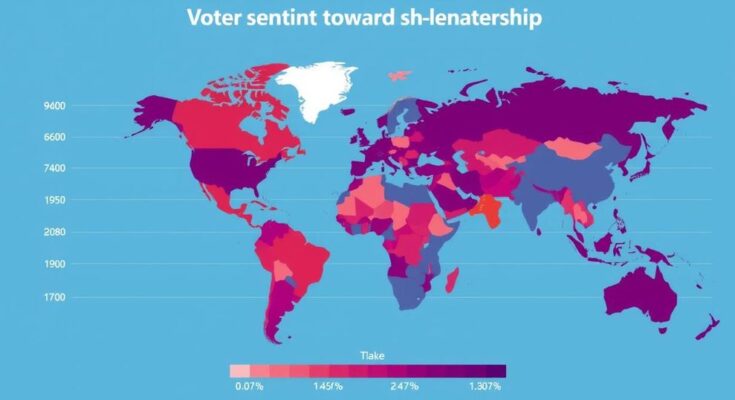In 2024, voters in around 70 countries signaled widespread dissatisfaction with incumbent governments, resulting in numerous defeats across various regions. Economic instability and social disruption fueled this anti-establishment sentiment. This trend was echoed through mass protests, contested elections, and growing support for populist leaders, marking a challenging year for established democracies worldwide.
In the year 2024, voters across approximately 70 nations, representing half of the world’s population, decisively expressed their discontent with incumbent governments, frequently echoing the sentiment of “You’re fired.” This global trend, attributed to various economic and social upheavals stemming from the COVID-19 pandemic, compounded inflation, and resultant geopolitical conflicts, led to significant electoral shifts. Countries from India to the UK saw incumbents ousted as citizens sought alternatives, often opting for leaders perceived as outsiders or populists. The climate of dissatisfaction was compounded by mass protests, election annulments, and attempts at suppressive governance in several regions, pointing towards a turbulent journey for democracy.
The electoral landscape of 2024 was characterized by widespread voter disillusionment with established political entities, reflecting broader trends of dissatisfaction with democratic governance. Scholars and political analysts, such as Professor Cas Mudde, expressed concern over the rise of extremism and the weakening of democratic norms. The phenomenon of “electoral long COVID,” as described by political scientist Rob Ford, serves as a critical backdrop, linking the enduring consequences of the pandemic with a growing impatience for effective governance. This scenario played out in varying depths across nations, where economic struggles and social disparities catalyzed dramatic political shifts.
The 2024 elections globally have highlighted a pervasive discontent with incumbents, driven by economic crises and the impact of the COVID-19 pandemic. The shifting political dynamics suggest a growing willingness among voters to replace established parties with new, often more radical alternatives. As subsequent elections loom, the implications of this voter sentiment could significantly reshape political landscapes, potentially heralding a more challenging era for democratic governance.
Original Source: www.pbs.org




